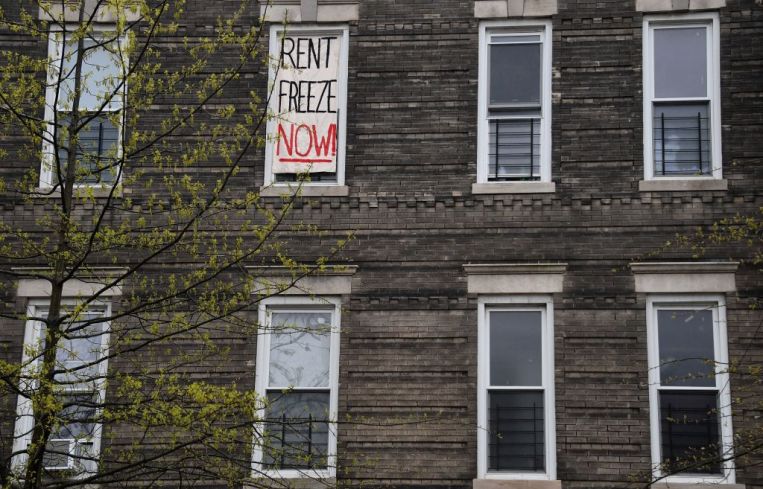City Freezes Rent at Stabilized Apartments for One Year
By Nicholas Rizzi June 18, 2020 11:37 am
reprints
The city froze landlords’ ability to raise rents for the nearly 2.3 million tenants living in stabilized apartments for one year to provide relief to some New Yorkers reeling from the economic effects caused by the coronavirus pandemic.
The Rent Guidelines Board — the city panel which sets the rent for the rent-regulated apartments — voted 6 to 3 last night to keep rents for one-year leases the same.
The board also froze rents for two-year leases at the same rate for a year and allowed a 1 percent increase for the second year. The changes go into effect for leases renewed after October 1.
“There is no doubt in our minds that a rent increase would destine thousands of tenants for evictions, for homelessness or worse,” Leah Goodridge, one of the board’s tenant representatives and a supervising attorney at the Housing Project at Mobilization for Justice, said during the hearing.
Tenant members of the board pushed a proposal that would have frozen rents for two years while landlord members tried to get the city to raise rents by 2 percent on one-year leases and 5 percent for two-year leases.
Scott Walsh, a landlord representative of the board, called the board “little more than a theater trying to give the public a sense of fairness” during his testimony and argued the freeze would make owners unable to keep up with rising property taxes and maintenance costs.
“Very simple math illustrates that rent freezes do not work unless part of a broader policy structure that includes simultaneous tax freezes,” Walsh said. “Going below 2 percent is less than inflation and functions as a rollback.”
Wednesday’s vote marks the third time the board froze rents under Mayor Bill de Blasio and comes during a time low-income New Yorkers — especially black and Latino residents — have been hit hardest by the coronavirus.
Low-income communities have higher rates of infections of the virus while bearing the brunt of job losses caused by pandemic, according to CNBC and Reuters.
Advocates called on the board to roll-back rents to help rent-stabilized tenants reeling from the effects of the pandemic, which has not been done in the board’s 50-year history, and said after the vote that the freeze does not go far enough to provide struggling residents relief.
“Despite data demonstrating the unprecedented economic impact of Covid-19 on rent-burdened New Yorkers and that landlord’s continue to enjoy healthy returns, the Board has cast its vote with disregard for the most vulnerable tenants,” Adriene Holder, a lawyer for The Legal Aid Society and a former tenant member of the board, said in a statement. “Even the 1 percent increase for two-year leases will have a devastating impact on those who can barely make rent as is. Their right to remain in their home and keep a roof over their families should have been prioritized.”
Landlord groups blasted the freeze saying that it would make it harder for owners to keep up with repairs for the city’s aging rent-stabilized buildings, especially in the wake of last year’s changes to the rent-stabilization rules.
“A rent freeze does not help the roughly 25 percent of rent-stabilized tenants who have paid no rent in April, May and now in June,” Jay Martin, the executive director of the Community Housing Improvement Program, which is suing the state over the rent-regulation changes, said in a statement. “Those tenants need the government to step up and provide them direct rental assistance. Sadly, this bumbling mayor is trying to deflect his failure by bullying the [Rent Guidelines Board] into passing a politically-motivated rent freeze so he can win a news cycle.”



